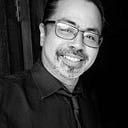Nonoy Espina: The courage to be free
We exercise press freedom not because we are allowed to. We exercise freedom because we insist on being free. — Nonoy Espina, former chair of the National Union of Journalists of the Philippines
When people insist on being free, in a world gagged and shackled by power-hungry wolves, the same are likely to get into serious trouble.
Noynoy Espina, former chair of the National Union of Journalists of the Philippines, knew this for a fact. Yet he remained unswerving in his belief that freedom to speak truth to power forms the fundamental tenet which shapes our dignity as human beings. Without it, every other right, including our right to life, could take a drastic turn for the worse.
Insisting to be free means that people must take a bold step into the middle of the struggle, fight to regain lost ground while simultaneously uplifting the freedom of those who take it for granted.
Nonoy Espina was the perfect example of that level of empathy. For while he waged battle after battle for his right to speak his mind, he never once reneged on the value of fighting for others’ right to do the same.
He championed better living and working conditions for journalists, higher wages, safety during coverage, health benefits, and legal support for newshounds charged with libel. Where the families of victims grieve for their loss, expect Nonoy to be there.
Nonoy was a fighter of unbelievable courage and resolve, with young campus journalists sharing fond memories of him as he saved them from wave after wave of harassment.
I cannot now recall when and where Nonoy and I first met, but I’m pretty sure it was through his sister Inday Espina-Varona, my former editor-in-chief, that we did. We hit it off instantly as beer and the blues were things we loved in common.
I never had the honor of joining him in a newsroom save for that stint at Dateline Philippines, one of the early independent online news portals where he sat as managing editor. However brief my stay may have been, I will always remember Nonoy with fondness as he had taught me one of the biggest lessons I’ve learned in years of being a journalist: to always be wary of the narrative of those in power.
The lesson went like this: in the course of our coverage of the Ampatuan massacre, the clan which perpetrated the slaughter of 58 people, more than 30 of whom were journalists, began changing their image in the eyes of the media. They started referring to themselves as “freedom fighters,” which at the onset lured some members of the local press to believe their claims.
Nonoy saw through the lies and began raising the absurdity of that statement. Insofar as the 200 or so hoodlums involved in the mass slaughter were concerned, the clan needed to “elevate” their status to “revolutionaries” in order to garner sympathy from the public.
In Nonoy’s eyes, and based on evidence, they were simply murderers.
I carried that lesson with me throughout my stint as editor-in-chief of the Philippines Graphic magazine. As editor, I’ve always insisted on not playing the “parrot” when writing about the statements of those we cover. “Check and recheck everything,” I would always say, with the mind to parse the words of those in authority before letting it see print.
The trick is to always ask the tough questions no matter how reluctant, if not reticent, the subject is. As such, I have learned to shoot my questions without appearing or sounding hostile. It led me to a kind of journalism that puts premium on intelligence and accuracy rather than being “hard-hitting” or “combative”. It taught me to choose my words well, structure my queries in ways which compel my subjects to answer them no matter how tough or sometimes self-incriminating these queries may be.
That particular lesson also taught me to steer clear of the snare of becoming the government’s mouthpiece without the benefit of context. The old-school idea of simply echoing interview statements in news stories empty of context fails in expanding the knowledge of Filipinos on important political issues.
The lesson taught me, moreover, that journalists must conduct their profession with the eye and passion of a scientist, leaving no stone unturned.
He reiterated this to me when I interviewed him for a column I was writing for LiCAS News Philippines on why journalists are bound by ethical standards to report on government falsehoods: “Yes, of course, since our mandate is to deliver timely and as ACCURATE information as possible to our people. We cannot do so if we do not call out the lies. To quote a falsehood in toto without saying it is false would be to spread that falsehood. That would betray our mandate, most especially if we do so KNOWINGLY.”
Nonoy’s courage in the face of serious threats, I feel, is his most vivid legacy. As chair of the National Union of Journalists of the Philippines, Nonoy’s leadership had shaped the organization as a voice to be reckoned with.
Nonoy gave red-taggers, corrupt officials, murderers, despots, and every fiend and ogre lurking in the country’s political and social underbelly no quarters. He was as astute a journalist as he was fierce, never losing the chance to comment on issues that hogged the headlines.
Regardless of the dangers, the NUJP was the better for it, apparently, as it raised and continues to raise the banner of press freedom wherever and whenever it was threatened.
Freedom has lost a fierce and brave ally in the death of Nonoy Espina from cancer. However much he will be missed, one thing is certain: the struggle for freedom and human dignity rages on with Nonoy as inspiration.
He was the journalist’s journalist, the man who never lost hope in humanity’s struggle to shape a wonderful world.
Rest in God’s peace, kapatid. We’ll take it from here. Padayon.
